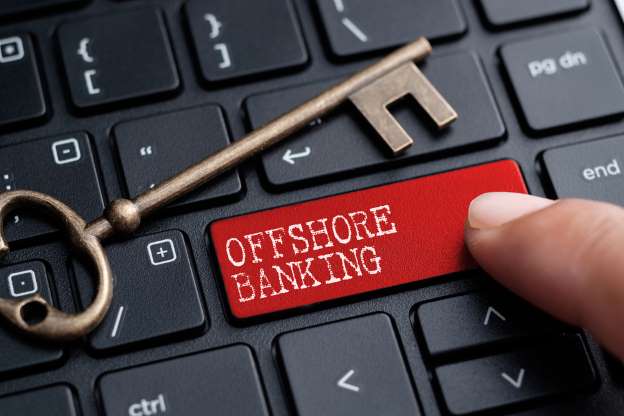Unlock International Wide Range Monitoring With Offshore Banking
The complexities of international finance demand an innovative understanding of overseas financial and its possible to improve global wealth management. By leveraging offshore accounts, people can not just shield their possessions yet also navigate the complexities of tax optimization and personal privacy. Yet, the choice of jurisdiction and the techniques used can substantially affect the efficiency of these economic devices. As we check out these aspects, the concern continues to be: what are the critical factors to consider that can transform overseas banking from a plain choice right into a critical advantage?
Understanding Offshore Banking

Offshore financial represents a calculated economic option for people and businesses looking for to handle their properties with greater adaptability and safety. An overseas financial institution is a financial organization situated outside the account holder's country of residence, frequently in jurisdictions known for favorable regulative atmospheres. These banks typically offer a variety of services, consisting of interest-bearing accounts, financial investment chances, and loans, tailored to fulfill the varied demands of their customers.
One important facet of overseas financial is the legal structure that controls these establishments. Many offshore financial institutions operate under rigid guidelines, making certain compliance with global regulations while securing the personal privacy and properties of their customers. This legal framework can offer a safety layer against political and financial instability in an account holder's home country.
Recognizing the ins and outs of overseas financial, including both the potential benefits and the regulative demands, is necessary for anybody considering this monetary opportunity. Via notified decision-making, customers can effectively take advantage of offshore banking to improve their financial strategies.
Benefits of Offshore Accounts
Amongst the various financial methods available, offshore accounts use a number of distinctive advantages that can dramatically improve a person's or business's monetary monitoring. Among the primary benefits is property security; offshore accounts can offer as a guard against political instability, economic downturns, or lawful disputes in the account holder's home country. This protective layer is specifically interesting high-net-worth people seeking to maintain their wealth.
Furthermore, offshore accounts typically give enhanced privacy. Many jurisdictions have strict discretion legislations that restrict the disclosure of account details, allowing customers to keep a higher level of monetary discretion. This privacy can be important for those wanting to safeguard delicate monetary data.
Another substantial advantage is the capacity for tax optimization. Relying on the jurisdiction, people and businesses might profit from beneficial tax obligation prices or even tax obligation exemptions, permitting much more efficient riches build-up.
Picking the Right Jurisdiction
Choosing the proper jurisdiction for an offshore account is an important decision that can affect the effectiveness of the economic advantages formerly outlined. Jurisdictions vary in regards to governing structures, tax effects, and degrees of personal privacy, all of which play a considerable duty in the general energy of an overseas financial approach.
When reviewing possible jurisdictions, take into consideration aspects such as political security, economic setting, and the reputation of the banking system. Countries known for durable economic services, such as Switzerland, Singapore, and the Cayman Islands, commonly offer a safe and confidential financial experience. Furthermore, it is important to examine the lawful structure regulating offshore accounts in the chosen jurisdiction, in addition to any international agreements that might influence your properties.
Moreover, tax nonpartisanship find this is a critical facet to remember. Some jurisdictions use tax obligation motivations that can boost the benefits of offshore banking, while others may enforce rigorous taxation on foreign-held assets. Eventually, choosing the right jurisdiction requires complete study and possibly the guidance of monetary professionals to guarantee that the selected location aligns with your particular monetary objectives and run the risk of tolerance.
Approaches for Asset Security
Carrying out efficient methods for property security is necessary for safeguarding wealth versus prospective risks such as lawful cases, political instability, or financial declines. One primary method is the establishment of overseas trusts, which can give a layer of splitting up between personal possessions and possible creditors. By placing properties in a depend on, people can shield their wide range from claims while benefiting from beneficial tax obligation treatment in specific territories.
One more method entails making use of limited obligation entities, such as offshore companies or limited liability firms (LLCs) These frameworks can shield individual possessions from organization liabilities and supply privacy, making it much more difficult for complaintants to accessibility individual riches.
Diversity of possessions throughout different territories is also crucial. Holding financial investments in numerous nations can reduce threats connected with any type of solitary economic climate's recession. In addition, buying tangible assets, such as realty or rare-earth elements, can supply additional security versus currency devaluation and inflation.

Finally, routinely assessing and upgrading possession defense methods in reaction to altering regulations and individual conditions is vital - offshore banking. Positive management of riches guarantees that people remain ready for unpredicted difficulties in an ever-evolving international landscape
Actions to Open an Offshore Account

First, conduct complete research to determine a suitable overseas territory. Variables to take into consideration include Going Here governing stability, banking reputation, and tax implications. Popular options commonly consist of Switzerland, Singapore, and the Cayman Islands.
Next, select a monetary institution that satisfies your requirements. Testimonial their services, costs, and account kinds. It's sensible to select a financial institution with a solid credibility for client service and safety and security.
When you have chosen a bank, you will need to gather the required paperwork. offshore banking. Generally, this consists of evidence of identification (such as a copyright), evidence of address, and economic statements. Some financial institutions may additionally need a recommendation letter or a source straight from the source of funds affirmation
After assembling your records, submit your application, ensuring it is full and exact. Be gotten ready for a due diligence procedure, which might include meetings or extra documents requests.

Verdict
To conclude, overseas financial functions as an essential device for people seeking to enhance their international riches monitoring techniques. The advantages of possession defense, privacy, and tax obligation optimization are considerable, especially when the proper jurisdiction is selected. By employing efficient approaches for securing properties and recognizing the procedural steps to develop an offshore account, investors can navigate the complexities of worldwide financing. Inevitably, offshore banking represents an effective device for accomplishing economic protection and development in a significantly interconnected globe.